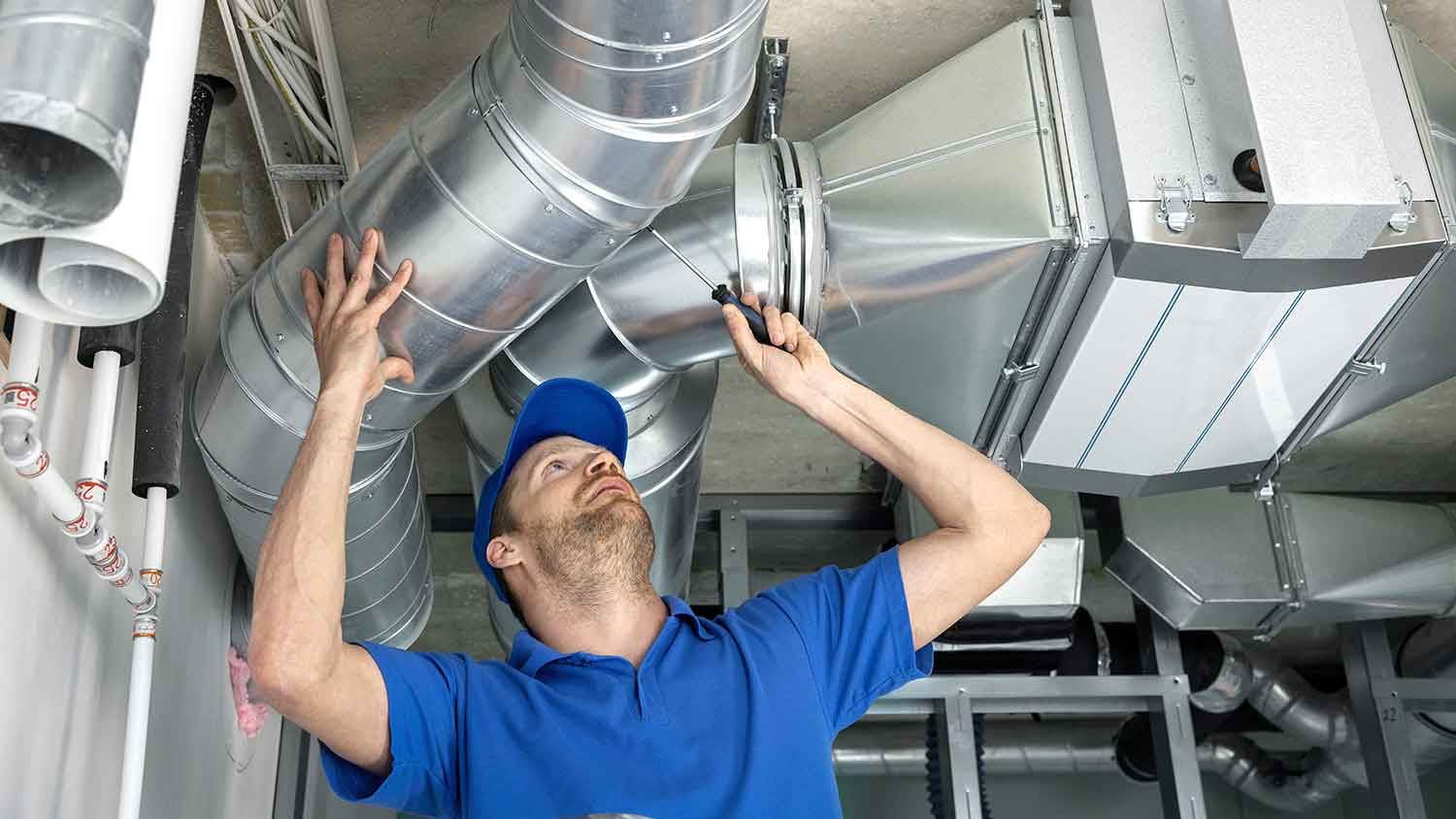
Regularly replacing your HVAC filter regularly is vital for a healthy system. Learn how much an HVAC filter replacement costs with this informative guide.

 4.4
4.4  845
845 *The Angi rating for Heating And Air Conditioning Service companies in Tampa, FL is a rating based on verified reviews from our community of homeowners who have used these pros to meet their Heating And Air Conditioning Service needs.
*The HomeAdvisor rating for Heating And Air Conditioning Service companies in Tampa, FL is a rating based on verified reviews from our community of homeowners who have used these pros to meet their Heating And Air Conditioning Service needs.
Last update on October 28, 2025
From average costs to expert advice, get all the answers you need to get your job done.

Regularly replacing your HVAC filter regularly is vital for a healthy system. Learn how much an HVAC filter replacement costs with this informative guide.

Discover the true duct replacement cost for your home. Learn about average prices, key cost factors, and tips to save on your ductwork replacement project.

Considering a heat pump to reduce monthly heating and cooling bills? Find out geothermal heat pump costs based on system type, capacity, and other factors.

Understanding common duct sizes for HVAC systems can ensure proper installation for better airflow. Here's what to know about ductwork sizing.

What you’ll pay in Tampa, FL, for furnace repairs depends on many factors. Here’s a breakdown of what can go wrong and the cost to fix those issues.

Water-cooled air conditioners use water in the cooling process of your air conditioner. Primarily used in larger buildings, these energy-efficient AC units can also be used in residential areas. Read on to learn more about these air conditioners.